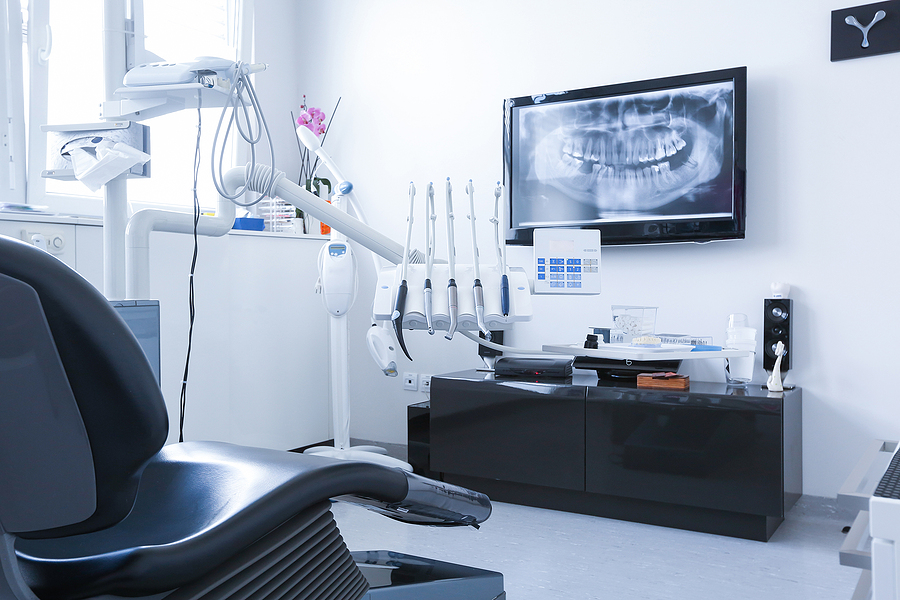GINGIVAL FLAP SURGERY CAN CORRECT SEVERE GUM RECESSION
Posted by OC ADVANCED PERIODONTICS on Oct 8 2018, 03:25 AM

A habit of poor oral hygiene often leads to dangerous amounts of tartar on your gum line, which is a common cause of gum disease. This periodontal infection needs to be treated early on to reduce inflammation before it causes your gums to recede from the teeth and create harmful oral health conditions including tooth loss.
If advanced gum disease has resulted in gum recession, a procedure known as gingival flap surgery may be used to repair your oral health. Gingival flap surgery is one of the most effective treatments to restore healthy gums following infection. This surgery involves separating the gums from the teeth and temporarily folded back to allow our dentist to reach the root of the damaged tooth and have access to the supportive bone.
Gingival flap surgery is often recommended to treat people who have moderate or advanced gum disease, or periodontitis, and often after scaling and root planing (a non-surgical treatment) has been done first. If scaling and root planing have not alleviated the infection in the gums, gingival flap surgery can make a big difference, and can also be done along with osseous (bone) surgery.
Our periodontist will make sure that your oral hygiene is in good shape by removing any hardened plaque (calculus) that surrounds your teeth. Our doctor will also assess your overall health and the kinds of medicines you are currently taking to make sure that surgery is right for you. Your surgery is done on an outpatient basis along with sedation so you won’t be able to drive afterward which means you’ll need to bring a family member or friend who can take you home.
The Surgical Procedure
When you have gingival flap surgery, our periodontist will make a small incision in your gums to separate them from your teeth, lifting them back in the form of a flap. This gives our doctor access to the roots and bone supporting the teeth and allows our doctor to remove the areas of inflamed, infected tissue surrounding the tooth roots. After the surgical area and root surfaces are completely cleaned out to remove diseased tissue, any holes or defects in the bone are smoothed out (also known as osseous recontouring) and covered with your remaining healthy gum tissue placed back against the teeth.
To make your recovery easier, we may prescribe anti-inflammatory medicine, painkillers or antibiotics to protect your mouth from infection and to help you remain comfortable as you heal. You will want to keep your mouth as clean as you can while your surgical site is healing. You can brush and floss as usual. You may be prescribed an antimicrobial oral rinse with chlorhexidine to control bacteria and plaque growth.
For more information or to learn if you would benefit from gingival flap surgery to eliminate or reduce pockets of diseased gum tissue and help you restore your periodontal health, we invite you to give our practice a call today. Our team is ready to help you create a better periodontal form, function and aesthetic when it comes to your oral health!
Share On

The Impact of Dental Implants on Jawbone Health & Facial Structure
Dental health is often overlooked, yet it plays a crucial role in our overall well-being. One of the …

How LANAP Helps Save Teeth and Reverse Gum Disease
Gum disease is more common than you'd think, affecting millions of people across the globe. Many often overlook …

Advancements in Dental Technology: Transforming Oral Care
Dental technology has significantly evolved, improving dental treatments' efficiency, precision, and comfort. Whether digital imaging, laser dentistry, or …

The Benefits of Chao Pinhole® Gum Rejuvenation: A Faster, Less Painful Alternative
Are you tired of hiding your smile due to gum recession? If so, you're not alone. Many people …

How LANAP Laser Treatment Can Save Your Smile: The Science Behind It
Are you tired of dealing with the discomfort and embarrassment of gum disease? If so, you're not alone. …
